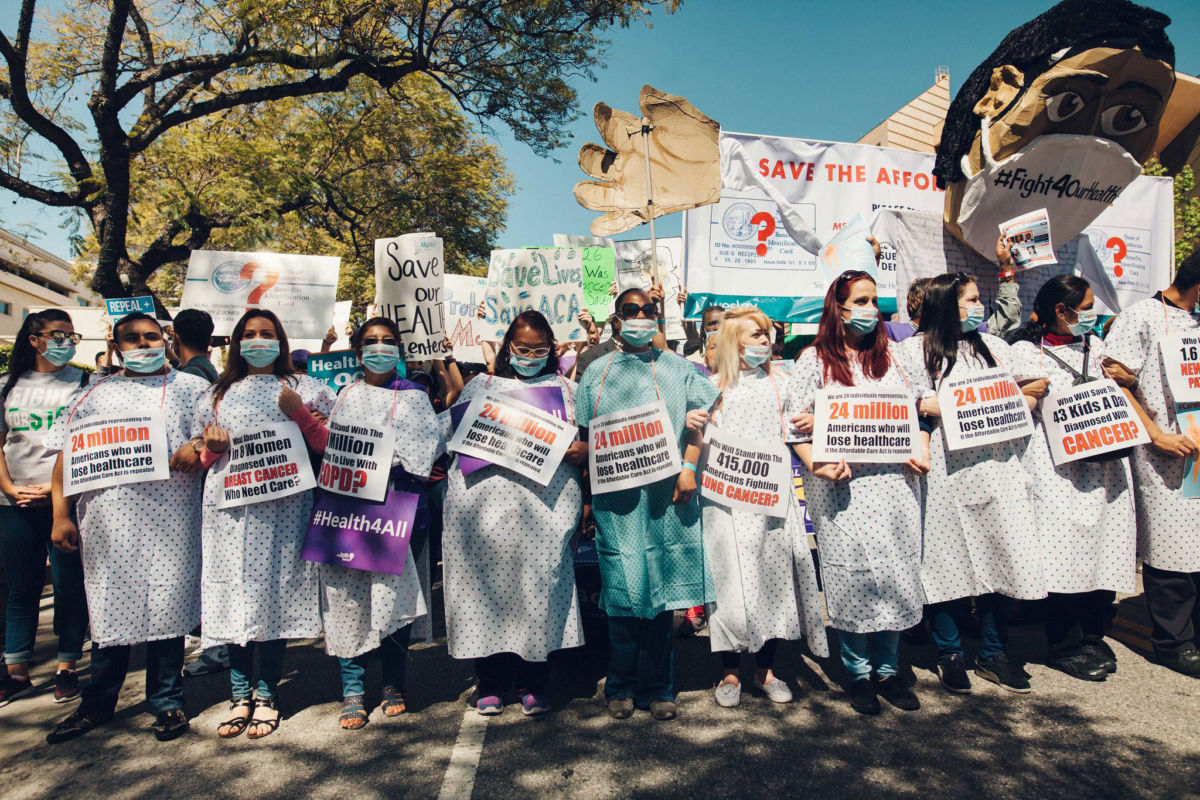A federal appeals court will hear oral arguments today on whether a district court decision striking down the entire Affordable Care Act (ACA) should stand. Should the courts uphold the decision, as the Administration is urging, more is at stake for Medicaid than is commonly understood. In addition to eliminating the ACA’s Medicaid expansion to low-income adults, striking down the ACA would put other Medicaid initiatives at risk and create massive disruption for state Medicaid programs, even in non-expansion states.
To be sure, the ACA’s most significant Medicaid change is its expansion to adults with incomes below 138 percent of the federal poverty line, which let millions gain Medicaid coverage for the first time and produced significant benefits for them, their families, and their communities, research shows. If the ACA is struck down, almost 13 million low-income adults would lose their health insurance and, with it, access to treatment for chronic conditions, mental illness, and substance use disorders. It would also cause greater financial instability for providers, such as hospitals, because they would incur greater uncompensated care costs due to the higher number of uninsured adults.
But that’s not all. If the Administration’s position prevails, it would also:
- Jeopardize states’ ability to administer their Medicaid programs. The ACA required states to transform how they determine Medicaid eligibility for most enrollees. In addition to changing how income is counted to align with eligibility rules for federal premium tax credits that help low- and moderate-income households afford coverage in the marketplaces, the ACA also required states to conduct eligibility determinations using streamlined processes. States would have to go back to the old — and more complicated — ways of processing and determining Medicaid eligibility. Not only would this harm beneficiaries, it could also be a significant challenge for states given the dramatic technology changes they have made to their eligibility systems to comply with the ACA. It’s unclear how states could determine Medicaid eligibility if they suddenly had to return to pre-ACA rules.
- Roll back children’s coverage, including for former foster children. The court decision would roll back mandatory Medicaid eligibility for children ages 6 to 18 from 133 percent to 100 percent of the federal poverty level, jeopardizing their access to important Medicaid benefits that help children thrive and succeed into adulthood. That could affect about 1.5 million children in 21 states. States could continue to cover these children in Medicaid as an optional eligibility group, or transition them to the Children’s Health Insurance Program, which provides somewhat narrower coverage and carries higher out-of-pocket costs. Also, if the decision stands, Medicaid eligibility for former foster care youth would revert to only those up to age 18, compared to up to 26 as the ACA now requires.
- Make it harder for seniors and people with disabilities to get care in their homes and communities. New state options to provide community-based, long-term care to seniors and people with disabilities would end, potentially causing beneficiaries to return to institutions for care.
- Raise federal and state costs for prescription drugs. The court decision would eliminate the increases in the Medicaid drug rebate percentage that the law authorized. Medicaid managed care costs would rise because Medicaid health plans would no longer be eligible for the rebates.
- Discourage states from promoting preventive services. States would no longer have incentives to offer preventive services and immunizations at no cost to beneficiaries, including tobacco cessation programs for pregnant women.
- Jeopardize delivery system reform and other health care quality improvement initiatives. The court decision would effectively shut down the Centers for Medicare & Medicaid Services’ (CMS) Center for Medicare and Medicaid Innovation, ending demonstration projects designed to improve the delivery of care to Medicaid and Medicare beneficiaries while lowering costs for both states and the federal government. The court decision would also stop states from using health homes — a delivery system reform model that the ACA created for states to help improve health outcomes for beneficiaries with complex medical conditions.
- End important Medicaid program integrity improvements. The ACA made changes to support state and federal efforts to ensure Medicaid program integrity. If the court decision stands, states would no longer have to screen providers, provide enhanced oversight for new providers and suppliers, or establish compliance programs in accordance with the ACA’s program integrity improvements.
- Reduce transparency. States would no longer have to solicit public comment on applications for section 1115 Medicaid demonstration projects, or federal “waivers,” and CMS would no longer have to solicit public comment before approving them. In addition, nursing facilities would no longer have to disclose information regarding ownership, accountability requirements, and spending.
Fortunately, the ACA remains the law of the land for now. And the legal reasoning behind the district court decision is weak; even some of the ACA’s most committed opponents predict it will be overturned. But if it were upheld, the harm to tens of millions of Medicaid enrollees, not just those enrolled through the ACA expansion, would be severe.
Join us in defending the truth before it’s too late
The future of independent journalism is uncertain, and the consequences of losing it are too grave to ignore. To ensure Truthout remains safe, strong, and free, we need to raise $31,000 in the next 48 hours. Every dollar raised goes directly toward the costs of producing news you can trust.
Please give what you can — because by supporting us with a tax-deductible donation, you’re not just preserving a source of news, you’re helping to safeguard what’s left of our democracy.
